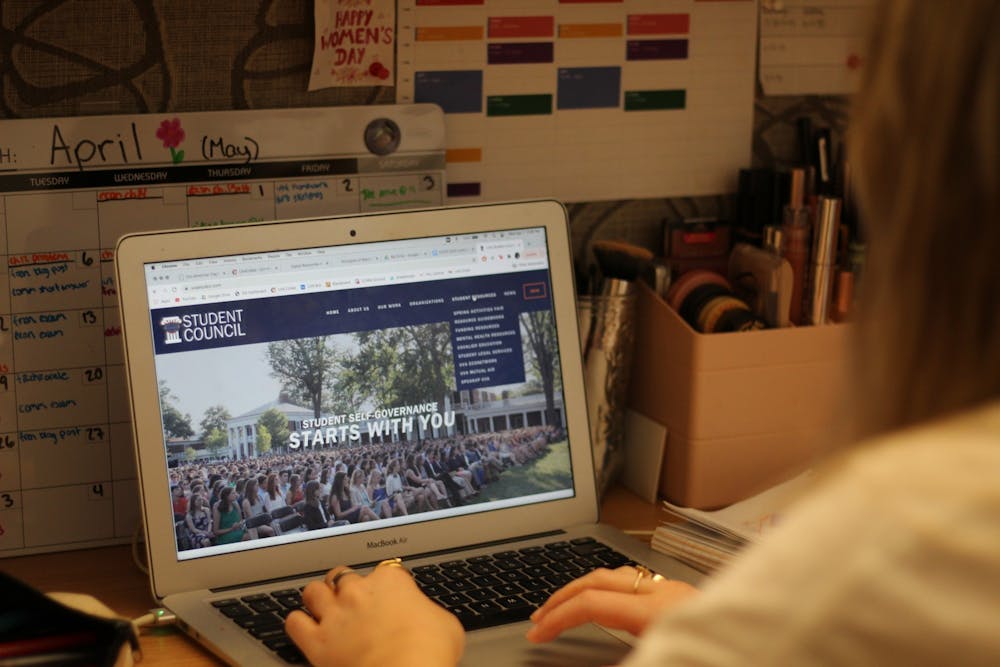Over the past several months, Andy Chambers, chair of the Honor Committee and fourth-year College student, has been the most notable cause of gridlock in the Honor Committee, directly affecting three of the University's most important student organizations. Between his refusal to modernize and adapt to students’ demands, delaying donations to U.Va. Mutual Aid and obstructionism of the University Board of Elections, Chambers has severely disrupted the flow of student self-governance. As tempting as it might be to blame Chambers himself, the bigger issue here is that a position of power exists at the University that would allow a single student to have this level of influence.
Self governance is held in high regard by the University’s administration and student body. One could argue that its patterns of delegation and bureaucracy model the nation’s federal system that we all know and love. The problem is that this system does not serve the people either. When one individual takes advantage of their influence, it becomes time to question the efficacy and equity of our existing systems.
The Honor Committee’s dysfunction and refusal to change is blatant — the disproportionate amount of minority students reported each semester leads to the disproportionate punishment of those same students. When changes to increase voting accessibility and efficacy were installed by UBE, Chambers was quoted saying, “both of these changes are cheapening student self governance and the established safeguards baked into institutions.” The proposed changes? Lowering the required signatures for a petition of referenda and allowing virtual signatures. Chambers then stated that if the petition passed, he would vote no on proposed UBE vice-chairs, effectively becoming a nonfunctioning member and taking up space on the Board.
Another controversy this fall centered around the proposed elimination of expulsion as the sanction for an Honor violation. Due to the Committee’s disproportionate sanctioning of minority students, one would think that it would be a no-brainer to halt expulsion — a system that serves to expel minority students at a higher rate than their white counterparts must be dismantled. However, Chambers refused to allow Committee members to attend and vote during meetings virtually, preventing any referenda from being passed.
This is a pattern of behavior for Chambers, as he also significantly delayed important donations to Mutual Aid, a fund that delivers grants to students in need of textbooks, food, rent or other necessities. Chambers fears that members of Student Council would weigh in on Committee referendums that he does not want to see passed. While it is unlikely that any comments from Liu would have an effect on Committee proceedings, by restricting cash flow to Mutual Aid, Chambers has effectively bought silence.
While it is tempting to simply call for Chambers’ resignation to solve Honor’s problems, the important point here is that any replacement has the same potential of obstructionism. When one individual has the power to block UBE, to disrupt grants to students in need and to deny fairer and more equitable punishment to students accused of Honor violations, our system of self-governance no longer serves the student body — it is serving those who participate for their own interest.
I have no doubt that most students would like to see Mutual Aid funding be consistent and untethered to University politics. I also have no doubt that most students would like to see the removal of the single-sanction expulsion. But if the chair of the Honor Committee can prevent any of these issues from even reaching a vote, the University cannot claim to be a student democracy. Self-governance without our input — or even the input of other student officials — is just governance, and it is governance gone awry.
I am not advocating for a removal of student governance. In fact, I support just the opposite. Removing influence from these positions by de-bureaucratizing these institutions would allow for greater student input. Being judged by a jury of your peers — in this case, other University students — makes sense, but only when those students are not on a power trip. Removing a student from the University affects their entire life. As it stands, students who cheat on exams receive the same sentence as someone found guilty of sexually assualting another person. The second should undeniably be removed, but the first?
Vetting these student officials before they reach their position is next to impossible. This is not a problem that can be solved with intervention — it must be solved by prevention. When student leaders have the ability to block others from receiving financial assistance or fully participating in University politics, it is time to shift the power back to the student body. There will be another student ready to preserve tradition and prevent equity and fairness from taking hold in University politics. We cannot afford to allow it.
Kyle Reed is a third year in the College of Arts and Sciences. He can be reached at opinion@cavalierdaily.com.







